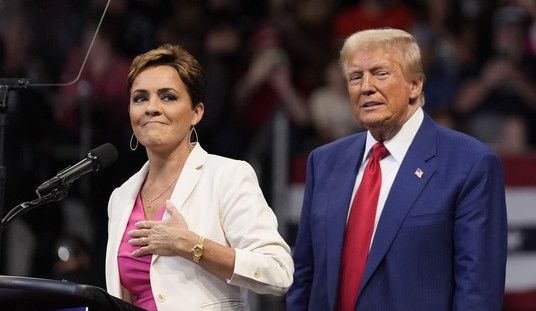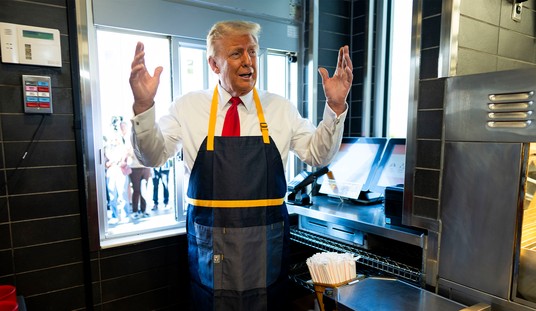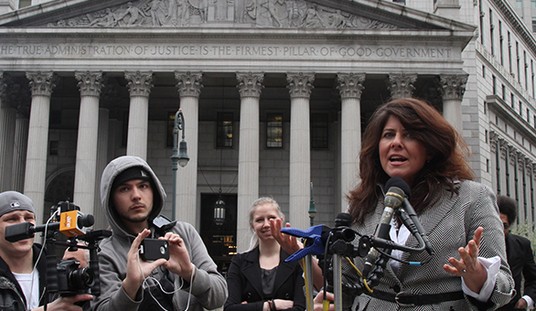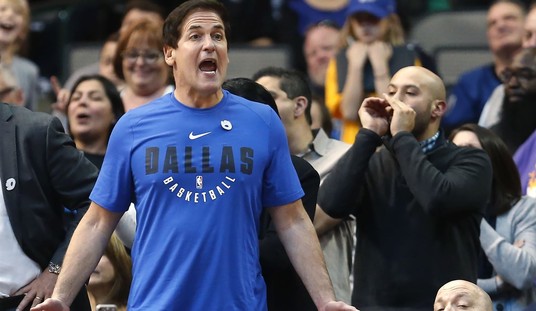With the holidays over and San Fran Nan’s impeachment kabuki still underway, it is important to maintain perspective on what exactly the Democrats have done in their entirely partisan push to impeach and remove President Trump from office. While Democrats and the media continue to propagate their false narrative that serious and impeachable crimes were committed, and that a “fair trial in the Senate” must be held, the reality is, in fact, diametrically opposite.
Democrats ignored the testimony of Jonathan Turley during and subsequent to their impeachment star chamber proceedings, but other voices have provided the correct perspective, including Judge Ken Starr. As the former independent counsel during the Clinton impeachment in 1998, Starr, of course, has been through a REAL impeachment investigation of REAL crimes – 11 to be exact – after many months of witness interrogations, as detailed here. Thus, his perspective is invaluable as he comments on a crime-less, rush-job impeachment this time around.
A couple of weeks ago, Starr was interviewed at length by Mark Levin on his Fox News Channel show “Life, Liberty and Levin.” I have extracted a subset of his sober remarks on impeachment that should be remembered by everyone as the farce moves to the Senate (or doesn’t, as Pelosi’s whims may dictate).
Starr’s commentary is broken down into three parts below: Pelosi’s own abuse of power, the false articles of impeachment, and the Senate’s role in the impeachment process.
The Democrats’ Violate House Rules in the Rush to Impeachment
Levin: … What’s going on in the House of Representatives today has never taken place in American history. The manner in which the Intelligence Committee took over the investigation, the manner in which that investigation occurred, dumping it into the House Judiciary Committee that gets testimony from lawyers and law professors. And now we have Nancy Pelosi after this vote is taken, this one-sided vote is taken who holds up the impeachment and says, “you know, under the House rules, I don’t have the point managers right now.” Professor Laurence Tribe of Harvard has told her, “hold it up, so you can get McConnell to do what they want him to do in the Senate.” What do you make of all this?
Starr: It is a lesson, and a nasty lesson in how not to do impeachment. It’s an example of raw power being exercised and the Constitution vests sole power in the House of Representatives. She seized power that I think belonged to the House of Representatives as a body, all 435 or 431, few absentee folks these days. She seized power on September 24. She unilaterally — without a debate in the House — and the House is supposed to be a deliberative body. That’s really what the rules are designed to promote, orderly, procedurally sensible decision making. She just said “here it is.” So she exercised a quasi-monarchical power, and I think imperiously seized the power of the House and said “this is now an impeachment inquiry.” Oh, yes eventually there was a vote, but only after the die was already cast. Now, the House Intelligence Committee, as you just said, with Adam Schiff and what an enormously poor judgment in the choice of someone to essentially lead the impeachment inquiry instead of someone like Peter Rodino, a Democrat during Nixon who was respected for his fairness. Henry Hyde, a Republican during Clinton, who was not simply respected he was beloved on both sides of the aisle, very conservative Republican but he believed in our culture of liberty, as you well know. Instead of someone like that of real dignity and stature, she chose someone who had led this extravagant, ill-founded theory of Russian collusion, which, by the way, was debunked by Robert Mueller.
The Democrats’ Faux Articles of Impeachment
Levin: Now, let’s talk about these articles, abuse of power and obstruction of Congress. A few short answers, if you will, and then we’ll get to the bigger point. Obstruction of Congress, really? Are we talking about the entire Congress, or are we talking about the Democrats in the House of Representatives? The Senate is part of the Congress, so it’s not even technically accurate to say obstruction of Congress. That said, when a president challenges a subpoena for a witness or documents — a former judge — and he goes to court to work out this complex dispute, separation of powers between Article I and Article II, and they go to an Article III court, how can that be obstruction of justice or obstruction of Congress?
Starr: It certainly is not obstruction of justice because the president was essentially saying, “Let’s go to the Article III branch.” That is our system, and we all know that. They have chosen — the House majority has chosen, “Well, that’s going to take too long, and we’re in a hurry.” So, I don’t think at all that anyone is seriously suggesting it’s an obstruction of justice other than rhetoric, but it shouldn’t be viewed as an obstruction of Congress either unless Congress just has, again, unchecked power in a system that’s so rich with checks and balances, as we learn in school. Okay, we have a disagreement here, and what’s the disagreement? You want the testimony of the closest advisers to the president, and as a matter of constitutional law, the president has the right to protect those conversations confidentially.
Levin: Why is that important?
Starr: It is important, as the Supreme Court of the United States recognized in Richard Nixon’s case, and recognized it unanimously. In order for the president to carry on the Article II function of serving as our chief magistrate, he has to be able to have the advice and the confidence of those around him, just as a judge has to be able to depend on his or her law clerks, and for that conversation between the judge and a law clerk, or between Nancy Pelosi and her general counsel, that has to remain confidential in order for there to be a full advice where — say, “This is our best judgment, Mr. President.” The president gets to protect those, presumptively. It can be overcome, but that’s why judges and the Article III branch sets.
Levin: … But this impeachment — I can’t even sometimes get my hands around exactly what this man is being impeached for. They can talk about interfering with an election; he didn’t tell the Ukrainians to interfere with an election. They could talk about whether they liked the phone call or not; they can talk about bribery all they want. When you look at the bare bones of the constitutional language and the history of impeachments as applies to presidents, we have never seen anything like this before.
Ken Starr: Nothing close. Take the abuse of power, Article I, and then lay that alongside the abuse of power article in the three-prong Nixon impeachment. A fair-minded person, when he or she reads the Nixon abuse of power, oh, my word. You say, “This guy has got to go. If this is true,” and it largely was, “he’s got to go.” You read this, and it essentially is rhetoric, and it’s characterization, and I would say this is one person’s reading. I think it’s a very unfair characterization of the transcript itself, and then it is a particular interpretation of the facts that followed, but while ignoring exculpatory facts. That was one of the strange things to me about the long report. Very briefly, the long report, in terms of the evidence as opposed to the rhetoric and the history and the tribute to the Founding Fathers — “We welcome that; we hope that this will be the new order of the ages. We want to know what the Founding Fathers thought.” They emphasize Ambassador Gordon Sondland. I listened to it, and I read it. His testimony, as the end of the day, was muddled and tended to be exculpatory. Who did they largely ignore? The most respected person who testified in the whole phalanx of witnesses, and that’s Ambassador Kurt Volker. Universally respected; everyone said, “Oh, his integrity is impeccable.” He even said, and I’m arguing the facts here, it was entirely appropriate for the president to want an announcement of beginning investigations, totally appropriate. Why? Because the Ukrainians had previously promised to investigate corruption, but had not lived up to their word.
The Senate’s Constitutional Role in the Impeachment Process
Levin: The way I see this is the Senate’s number one obligation is to protect the Senate and uphold the institution and the Constitution. If you have the other body that’s conducting itself in an anti-constitutional way, why would you then entertain it with comity? Does that not give it then the Senate’s imprimatur? Is it not then the mob or the rogue behavior in the House that leaches into the United States Senate? And isn’t the Senate and its role under our Constitution, as it was debated at the Constitutional Convention, say in Madison’s notes and Madison was worried about the House, was to protect us from the House?
Ken Starr: Congressman from Maryland, who stood in and during the House Rules Committee earlier in that proceeding, said it’s essentially the record is so conclusive and it’s essentially uncontroverted. Well, that’s your judgment, but that’s the judge or the prosecutor. The Senate could very well say, you’ve really got to be kidding me and by the way, you’re wanting additional witnesses, I’m so sorry you can’t have it both ways. We call it intellectual incoherence or just, hey, you’re flat wrong. You’re so inconsistent out of one side of your mouth, you’re saying X, and the other side you’re saying Y, you can’t be right both times. It’s uncontroverted, it’s overwhelming, and we need more witness.
Summary and Conclusion
It is very important to keep Ken Starr’s remarks in mind as the impeachment farce unfolds. Here is a short summary of the key points he made:
- The House rules are designed to promote, orderly, procedurally sensible decision making. Pelosi and the Democrats flagrantly violated them in their rush to impeachment by running a partisan star chamber process that tightly controlled witness selection and testimony given. There was no due process afforded to Republicans and the President. The implication is that it is the Democrats who abused their power, not the President.
- Pelosi’s choice of Adam Schiff to lead the “inquiry” was horribly unfair compared to those selected to lead the Clinton impeachment inquiry, as Schiff led the “extravagant, ill-founded theory of Russian collusion” that Robert Mueller eventually debunked. Schiff was biased against the President to begin with.
- Starr considers the “obstruction of Congress” charge to be simple and unserious rhetoric because, as a matter of constitutional law decided by the Supreme Court in the Nixon case, the President has a right to protect conversations with his advisers and treat them confidentially (“presidential privilege”). Taking that dispute between the Article I and II branches to the Article III branch (the courts) is not obstruction; it is the normal process.
- It can’t be “obstruction of Congress” on a technicality because Congress also includes the Senate which wasn’t even involved in the House impeachment inquiry.
- The abuse of power charge is equally bogus, as the Democrats ignored exculpatory testimony from Ambassador Volker who said that it was entirely appropriate for the President to have wanted an announcement of investigations since the Ukrainians had promised to do so but hadn’t lived up to their words. And of course, the Democrats ignored Ambassador Gordon Sondland’s testimony that the President specifically did not want a “quid pro quo.”
- The Democrats are “intellectually incoherent” in claiming that the House evidence is “overwhelming and uncontroverted” while at the same time demanding more witnesses in a Senate trial because the case is weak. The Senate is constitutionally empowered to reign in a highly partisan and rogue House, and Starr implies that Majority Leader Mitch McConnell’s public statements on a short trial with no witnesses similar to the Clinton impeachment trial could likely be the way it goes.
Will Pelosi pull the trigger and send the Democrats’ two articles to the Senate this week? If so, we should remember Ken Starr’s commentary as the proceedings unfold.
The end.













Join the conversation as a VIP Member